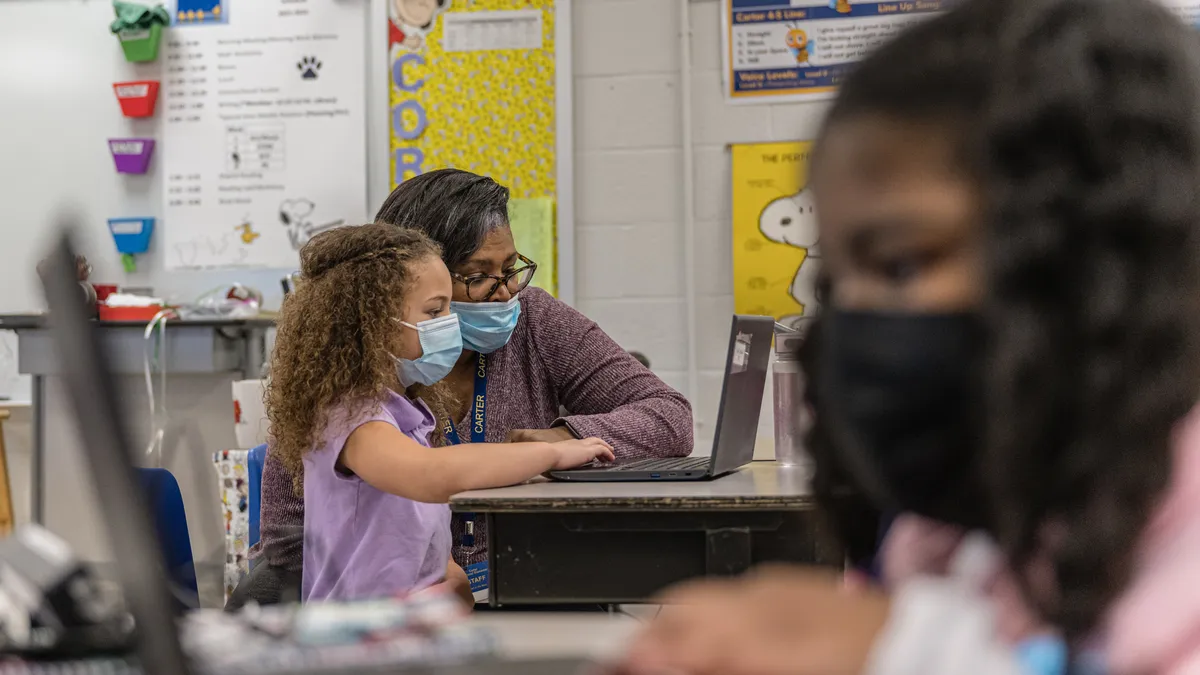Dive Brief:
- Heading into the 2022-23 school year, Indiana has 1,906 teacher vacancies, including 451 for special education, said Katie Jenner, Indiana secretary of education. There’s a downward trend of teachers entering the profession in Indiana, she said during a Wednesday webinar on teacher shortages held by the Education Commission of the States.
- In Nevada, a grow-your-own program is in place in high schools for students beginning in their first year, said Jhone Ebert, Nevada superintendent of public instruction, during the webinar. She said 8,000 students are enrolled in the program, which qualifies as a career and technical education course.
- Moving forward, both state education leaders agreed, significant work is needed to develop data about the supply and demand of educators. More teacher workforce data can help identify and remove barriers to recruiting and retaining education professionals, Ebert said.
Dive Insight:
In Nevada, Ebert said, statewide data over the last five years shows it’s been difficult to retain teachers, but she’s not sure exactly why, because there’s no statewide exit or working conditions survey.
Meanwhile, Indiana launched a new data system measuring educator marketplace demand in March 2022, Jenner said. Another system measuring teacher supply is expected to begin this fall, she said.
“I think we were, like many states, using significant lag data to make decisions for today,” Jenner said.
States have varied their approaches to addressing immediate needs arising from the nationwide teacher shortage. In March, the National Center for Education Statistics published survey data that found 44% of public schools were affected by full- or part-time teacher vacancies.
Both Nevada and Indiana are implementing strategies to diversify the teacher pipeline, too. Nevada’s grow-your-own program is one way, because the diverse student body is a great source to tap into to develop future teachers of color, Ebert said.
Additionally, Indiana has a public-private partnership between Ivy Tech Community College and Marian University in Indianapolis that is targeting the state’s five largest urban communities to develop more diverse grow-your-own pathways, Jenner said.
Teachers also need to be paid more, Jenner and Ebert said. Recognizing the teacher shortage crisis, an increasing number of states have been working in the past year to raise salaries.
“Unless we start to acknowledge the supply, demand and how the marketplace works, and how we must pay — our science teachers are going to continue to be drawn by the biotech company right down the road,” Jenner said. “It is happening on repeat, and I think we’re seeking to learn a lot from what that marketplace shows us, and maybe again how we might lean in on significantly increasing our teacher pay.”













